Catifa Carta chair marks a "milestone" in Arper's sustainability journey
Promotion: Arper has cited its latest chair, the Catifa Carta - made almost entirely from waste materials and fully recyclable - as emblematic of its transition into embracing the circular economy.
It coincides with the Italian furniture brand publishing its annual sustainability report this month, outlining some of Arper's key achievements in 2023. Most notably, the company increased its use of recycled materials by 15 per cent while reducing waste intensity by more than 24 per cent.
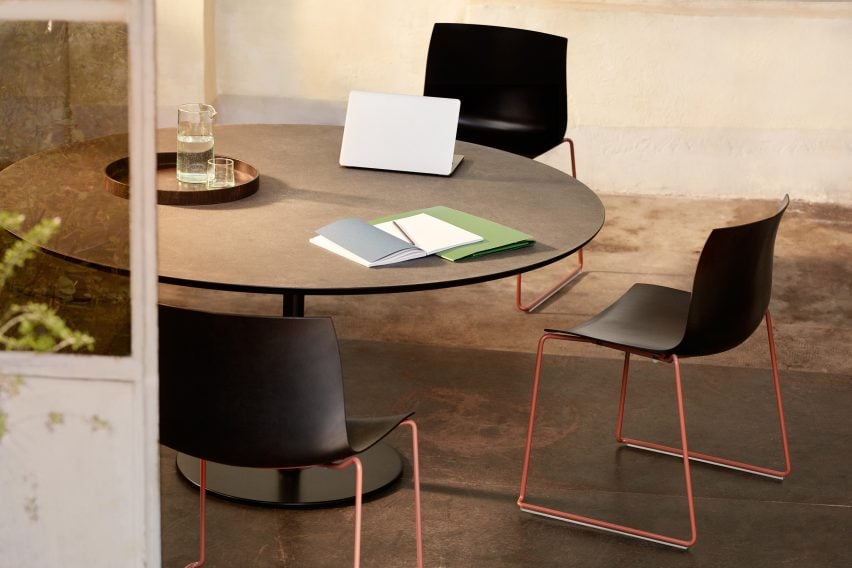
While the report outlined the progress the brand made last year, Arper said the newly launched Catifa Carta chair exemplifies "increasing demand for environmentally conscious design while demonstrating that beauty, functionality, and sustainability can harmoniously coexist".
The chair is an updated version of Lievore Altherr Molina's Catifa 53 chair from 2001, with its distinctive bi-curved shell rendered in paper rather than plastic.
The material used to form its seat is called PaperShell and is made almost entirely from waste materials, mostly residues from wood production that are turned into kraft paper.
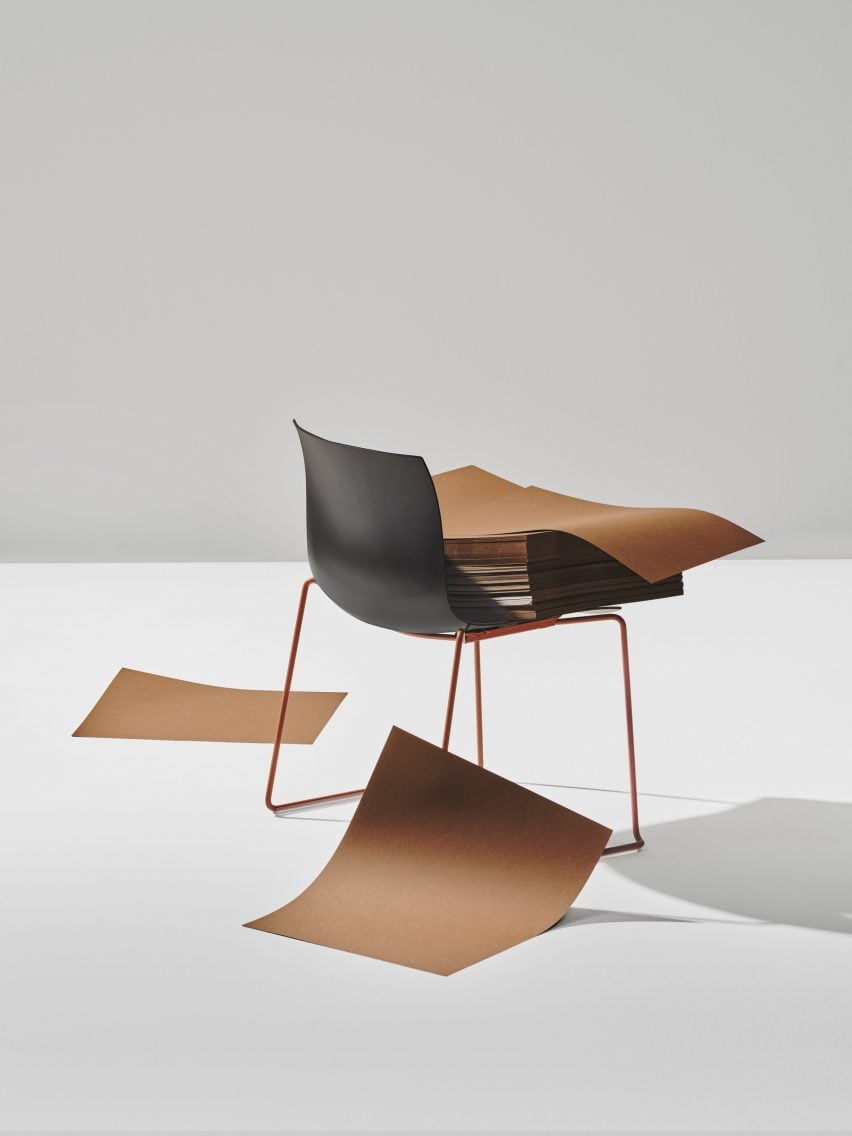
Exactly 29 sheets of this paper are then layered and bound together using pressure and a natural resin binder derived from agricultural waste streams.
Instead of becoming waste, PaperShell can actually become a carbon store and a soil enhancer at the end of its life by burning the material in the absence of oxygen in a process known as pyrolysis.
This prevents the carbon stored in the wood residues from being emitted into the atmosphere and instead locks it away in a carbon-rich substance that can be used to enrich soil and grow more trees.
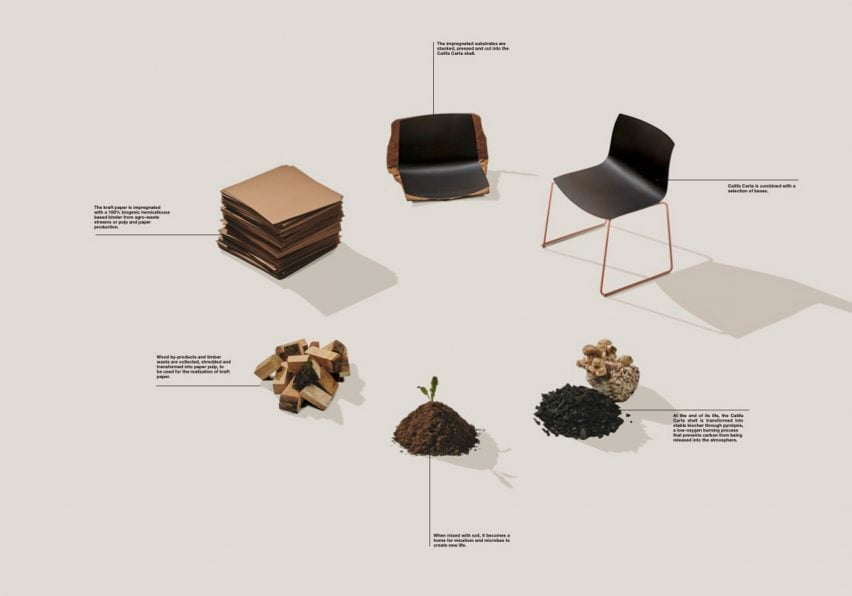
According to Arper CEO Roberto Monti, the launch marks a crucial turning point in the sustainability strategy of the company, which established its first environmental department in 2005.
"This milestone marks not only a triumph in design but also a significant step forward in our journey towards a more sustainable future," he said.
"By embracing pioneering materials and conscientious practices, we aspire to inspire change and set the standard for responsible business in the industry."
Catifa Carta was designed to be fully disassembled, allowing the chair to be easily repaired and maintained to extend its lifespan.
This builds on the refurbishment programme Arper is currently piloting in the Netherlands and the Nordics in collaboration with local partners.
"With this partner, we provide information about which products out in the world we predict are coming to their end of life, and then the partner can get in touch with those users, bring the product back and restore it," said Arper's head of sustainability Andrea Mulloni.
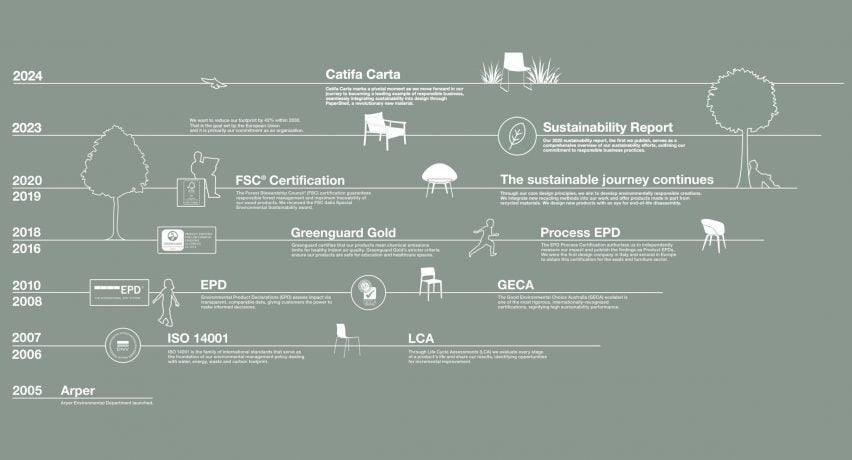
Each Catifa Carta chair also comes with a QR code that reveals details on its composition, maintenance and proper disposal.
Now, Arper is working on formalising a take-back scheme to ensure that all of the chairs – and ultimately all of the company's products – are handled properly at the end of life to reduce waste to a minimum.
As part of its pivot towards a more circular system, the company says it aims to further ramp up the use of PaperShell and other recycled materials across its existing and future products.
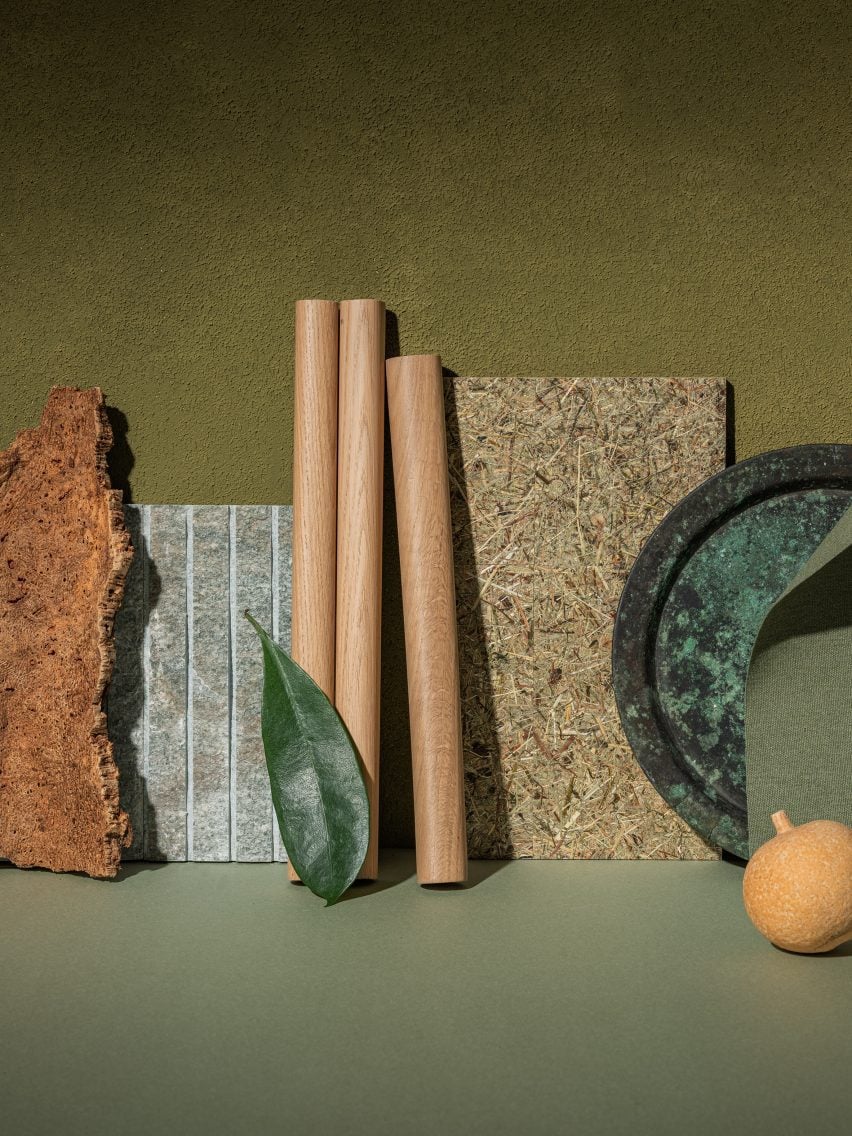
"Catifa Carta is not just a product," Monti said. "It is a symbol of our commitment to sustainability, connecting the past, present, and future."
The Catifa Carta project features prominently in the early episodes of a podcast series Arper produced recently outlining its shift towards adopting circularity principles.
For more information on Arper's sustainability strategy, refer to the company's 2023 sustainability report.
Partnership content
This article was written by Dezeen for Arper as part of a partnership. Find out more about Dezeen partnership content here.